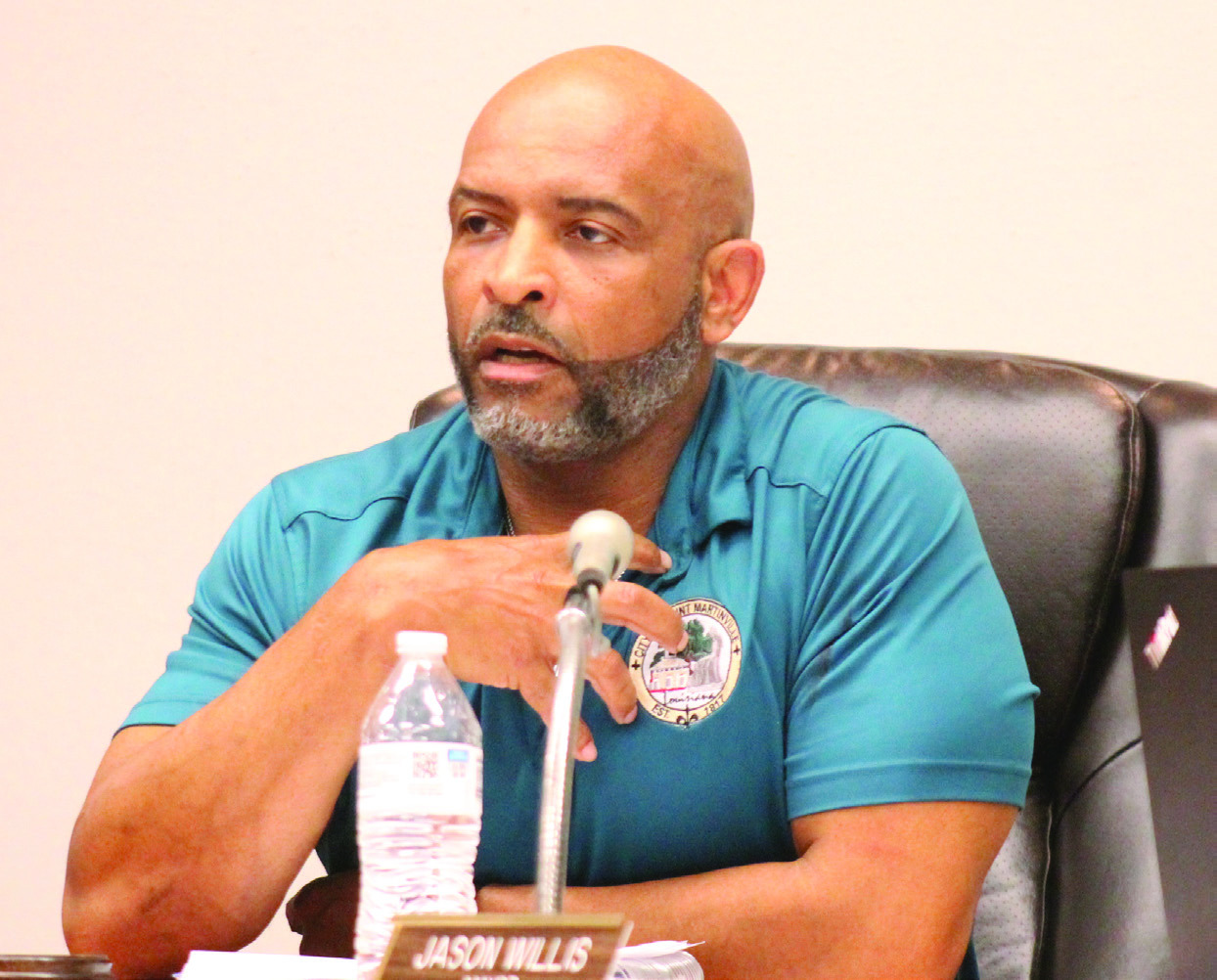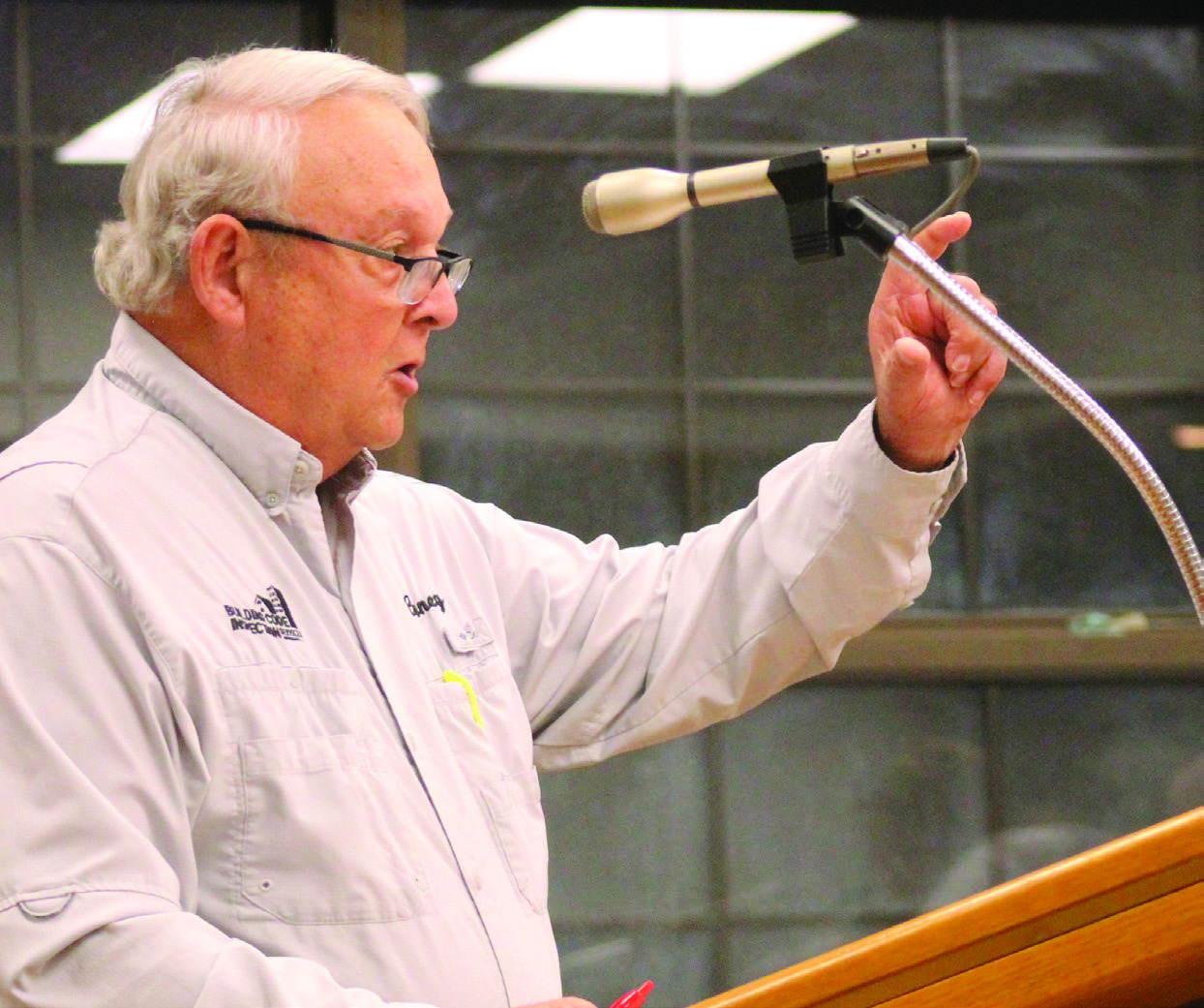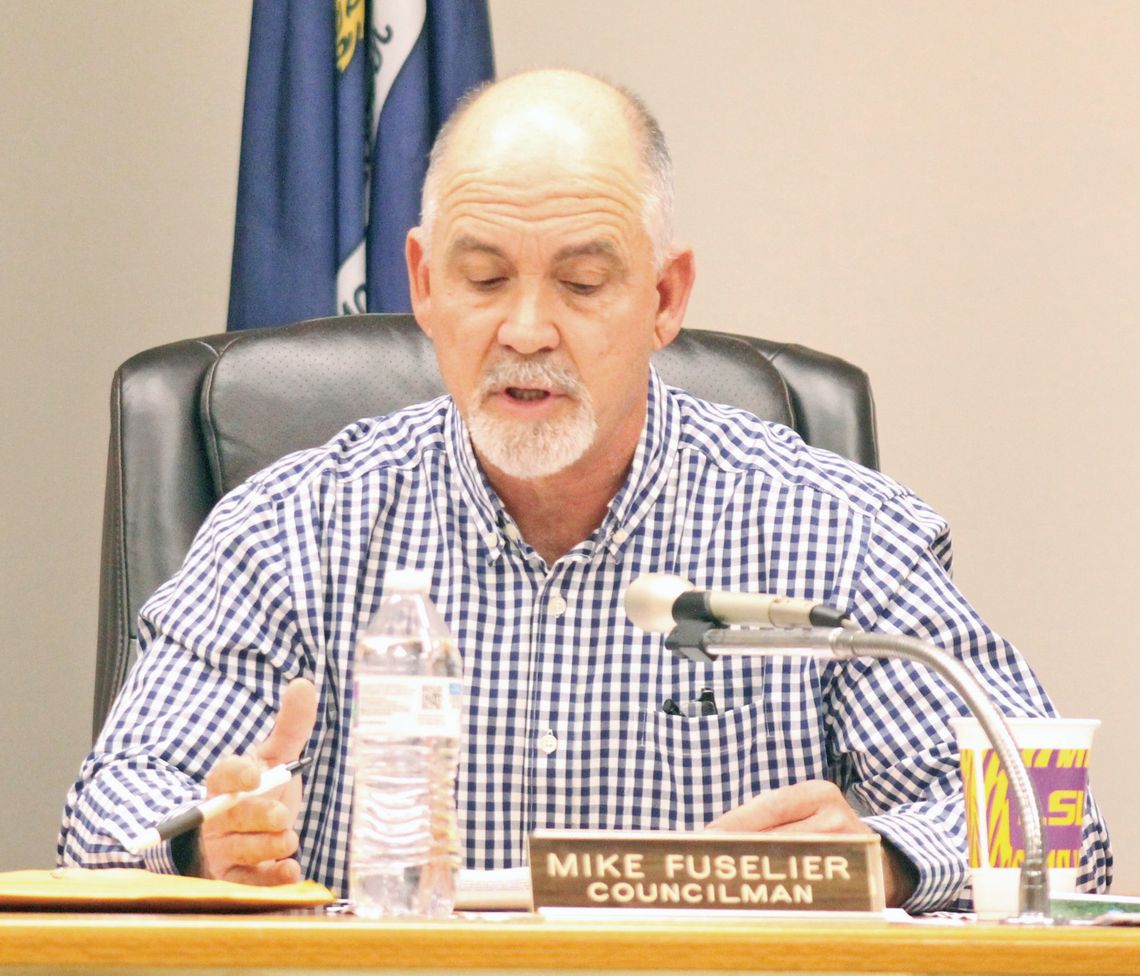– The St. Martinville City Council voted 3-2 at its meeting Monday to hire municipal government consultant Karen White to help explain the differences between St. Martinville’s current legislative charter and the Lawrason Act form of government that the city has put on a May 3 ballot for residents to decide if they wish to change to the more widespread form of city government used throughout Louisiana.
The city’s special charter has been in effect since the late 1800s and provides for a stronger role for the city council in governing the city. The Lawrason Act, written in 1898 by the Louisiana Legislature and updated frequently since, provides for a municipality to be governed by a mayor/board of aldermen form of government with the legislative powers vested in the board of aldermen and the mayor acting as the chief executive officer of the municipality.
The Lawrason Act provides for a set of checks and balances to the power of any one branch of city government, White said at the council’s Feb. 3 meeting, much like the U.S. Constitution’s separation of powers among Legislative, Executive and Judicial branches. Under the Lawrason Act, the board of aldermen or city council is the legislative branch, and the mayor is head of the executive branch and in charge of administration. The council voted 3-2 at that meeting — the mayor providing a tiebreaking vote after Councilwoman Janise Anthony abstained — to bring the issue of a change to the Lawrason Act form of government before residents in the May election.
“A lot of people don’t understand exactly the differences, why we want to change, why we should change, what our legislative charter does that the Lawrason Act doesn’t, or what the Lawrason Act does that our legislative charter doesn’t,” Mayor Jason Willis said at Monday’s meeting. “And we need to educate the people. I think we owe the people that in order to let them make a sound decision or opinion when they go to vote.
“What we want to do is bring facts (to the people).”
Councilman Mike Fuselier again reiterated his stance in favor of a stronger council vs. the Lawrason Act’s stronger mayor’s role in city government.
“As you said, we’ve been having this charter for a whole lot of time throughout a whole lot of mayors and a whole lot of council members,” Fuselier said. “When our founding fathers created this charter, and they adopted it, it was purposely done as a strong council system where the mayor and council govern together.
Consultant
“The mayor recommends and even votes at times, and the council makes voting decisions. Each council member was free to represent his or her constituents. The change is going to be a very big change. All hiring, all firing, all promotions, all raises, will be done by one person instead of a conglomeration of council members.”
Fuselier said the city will spend $4,800 for a lobbyist (White) to promote the new system of government, and $20,000 for the election, but at the same time has a water well that doesn’t have a generator.
“So I think the money could be spent on a lot better things,” Fuselier said. “I was not for this 15-20 years ago when I served with Mayor (Eric) Martin, and it’s never been brought up. For this reason, I think that a strong council system is the best thing because it’s the most representative type of government.”
The state eliminated the creation of any new legislative charters for municipal governments at its 1973 Constitutional Convention and since then any municipality looking to be created or to change its form of government can only use the Lawrason Act form of government or the Home Rule Charter system.
Willis said there are currently papers going around the city showing the differences between the Lawrason Act and the Home Rule Charter. The mayor said that is misleading because the city is not governed under a Home Rule Charter and that is not an option on the ballot.
According to the Louisiana Legislative Auditor’s website, 248 villages, towns and cities in the state are governed by a Lawrason Act form of government; 24 are governed by special legislative charters; and 33, primarily larger population centers, use Home Rule Charters.
Fuselier and Councilwoman Carol Frederick voted against hiring White; Flo Chatman, Jonas Fontenette and Janise Anthony voted in favor.
The contract calls for White to attend up to three town hall meetings to be used to inform the public of the differences between the current form of city government and the Lawrason Act; to develop a comprehensive onepage fact sheet about the Lawrason Act and current form of government; create additional informational materials as needed; and other services.
The $4,800 fee would include travel, meetings, research and drafting of materials.
Building permits
Rodney “Cooney” Richard of Building Code Inspection Services provided an overview of building permits — what is required of people who wish to build or alter their property — according to state laws and regulations and local regulations.
He also helped in a discussion of property at 112 Labbe Street, which Richard declared a condemned property because the cost to repair the flooring system in the home there is more than the value of the home itself.
Fuselier had brought the issue up because the city council had voted at its meeting two weeks ago to give the owner 90 days to come up with a plan to fix the house, and to board the house up because neighbors had been complaining that people regularly trespass in the property to use illegal drugs.
Fuselier had not seen the house boarded up as of Friday, though that was fixed later that day, according to the owner. Fuselier saw on Monday that the door had been boarded up.
The owner said that he considered it harassment that the matter was brought up again after two weeks when he was given 90 days to begin making progress on fixing the issues.
Richard told the council that owners are given two years to fix the issues with their homes starting on the day the house is boarded up — if the house does not appear to be a nuisance or dilapidated from the outside, which that house does not — and the council agreed to give the owner two years to fix the house before it needs to consider what to do about the property.
In other business
The city council also agreed to a request by Historic District Commission chair Richard Lanthier to appoint Charlie Maraist Jr. as a new voting member of the commission.
The council also approved a request from Culture, Tourism and Recreation Director Danielle Fontenette to hold the annual Acadian Memorial Festival on March 14-15.
The council approved a candlelight vigil on Thursday, Feb. 25, starting at 5 p.m., for Shentell Brown, 47, who was killed by her husband on Feb. 9 before he killed himself. Brown had served in the 16th Judicial District Court for over two decades in the juvenile non-support division. The vigil also will serve as a vigil for victims of domestic violence.
The council tabled discussion of an ordinance to establish penalties for failure to obtain permits when outside utility companies do work on city streets.
The council approved an ordinance requiring installation of cut-off valves for water on all properties whose titles change hands (are sold to another person or business) or that require inspection after having service cut off for more than six months, and recommending that all older homes have cut-off valves installed.
The council also adopted an ordinance calling for installation of addresses on all homes and businesses within city limits, if that is not already required under 911 regulations.
The council agreed to hire a new utility department cashier, and to fire an employee who has not worked for months since being hired.
The council also approved the mayor signing a letter to the Section 8 authorities rescinding the city’s request to transfer its Section 8 housing clients to the parish, as the city has begun rectifying issues with its Section 8 program.




